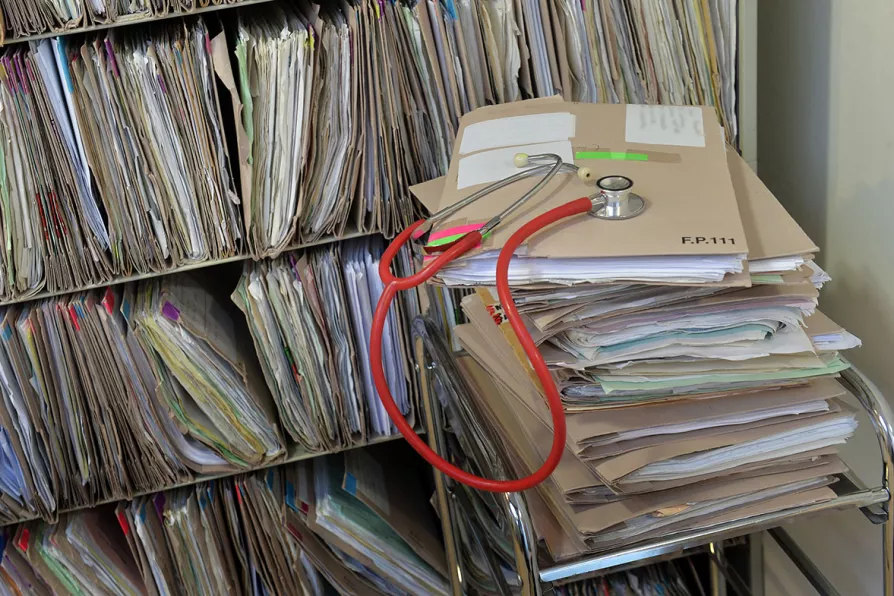Error message
An error occurred while searching, try again later.
 A stethoscope on top of patient's files at a GP Practice near Golders Green, London
A stethoscope on top of patient's files at a GP Practice near Golders Green, London
PRIVATELY funded neighbourhood health services will only serve as “ATMs for investors,” campaigners warned today.
New data released by NHS England reveals that people in the poorest areas are waiting longer for hospital treatment than those in the wealthiest.
It shows that, at the end of June, 3.1 per cent of patients living in the most deprived areas had been waiting over 12 months to begin treatment, compared with 2.7 per cent in the least deprived.
The gap varied from region to region, in the Midlands ranging from 3 per cent in the most deprived parts to 2.4 per cent in the least deprived, and from 2.4 per cent to 1.8 per cent in London.
Women made up a higher percentage of those on waiting lists (57 per cent) than men (43 per cent). The largest specialism for those on waiting lists aged 18-64 is gynaecology, at 12 per cent.
Some 3.2 per cent of patients identifying as Bangladeshi and 3 per cent of those from Pakistani and African backgrounds had been waiting over 12 months to begin treatment, a higher proportion than those identifying as Chinese (2.8 per cent), British (2.8 per cent) or Indian (2.7 per cent).
Health Secretary Wes Streeting said: “Our 10-Year Health Plan will tackle health inequalities faced across the country, diverting billions of pounds to working-class communities and providing truly targeted, bespoke care to all patients where they live via the neighbourhood health service.”
The new neighbourhood health centres will target places where healthy life expectancy is lowest.
But We Own It lead campaigner Sophie Conquest said: “The plan suggests using public-private partnerships (PPP) to fund these.
“Such privately funded services will simply serve as ATMs for investors and healthcare will suffer as a result.
“Time and again, privatisation has hit people with the least money the hardest.
“The rip-off of NHS PFI deals has resulted in crumbling hospitals struggling to pay back their debts to investors.
“By introducing private-finance-funded neighbourhood health services in the most deprived areas, Streeting is repeating the pattern of giving the worst healthcare deal to the least wealthy.”
Keep Our NHS Public co-chair Tony O’Sullivan said:
“Poverty and social inequality kill people.
“They breed health inequality, longer waits, reduced access to healthcare, shorter lives in good health and higher mortality.
“We need a restored NHS as the bottom line, but addressing poverty and inequality would be the greatest contribution to Streeting’s aim to prevent ill health, far more effective than NHS apps and AI.”










